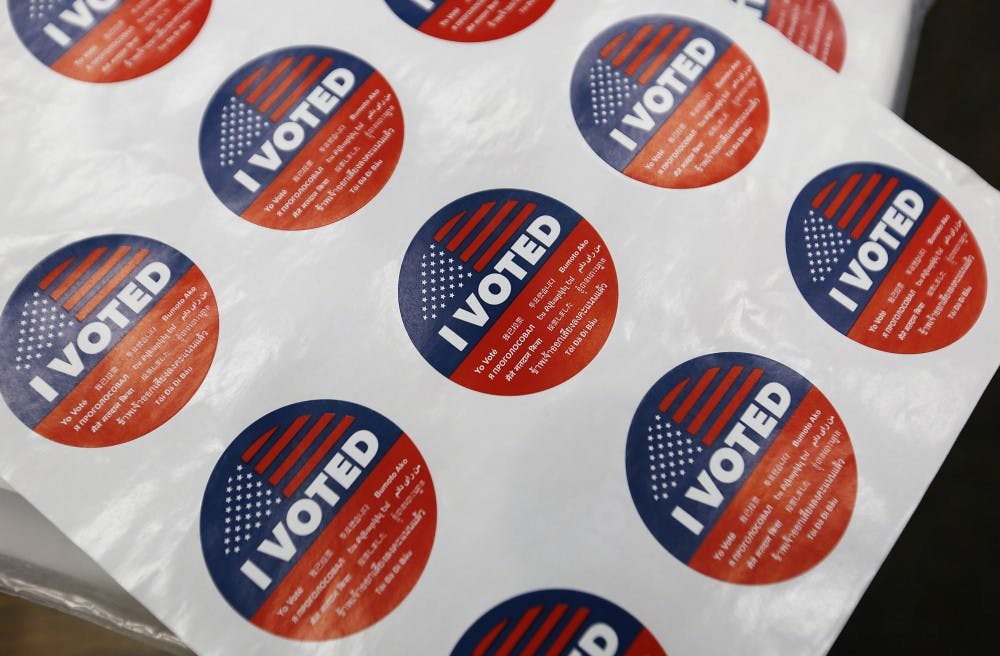With the Oct. 9 voter registration deadline creeping up, there’s not much time for IU students to decide whether to cast their ballots in Monroe County or make alternate plans to vote at home.
Each election season, college students nationwide are faced with a confusing question: whether to vote in their home county or the county where they go to school.
There's a kind of weighing that happens when students make this decision, forcing them to consider where their vote would matter most. Republicans aren't likely to flip Monroe County red, just as Democrats probably won't turn Wells County blue.
The Monroe County Election Board wants students to vote where they feel the most educated on the candidates.
Board chair Republican William Ellis said he thinks students generally should vote at home since they’re more likely to know what’s happening in the local races.
“They are going to know the candidates a lot better there where they’re from because they have roots there,” he said.
Democratic member Carolyn VandeWiele had a different take.
“You guys live here for four years,” she said, “and so what happens and what elected officials do in this county does affect what happens to students.”
Ellis said if students haven’t taken the time to change their driver’s license information to reflect their status living in Monroe County, they should probably vote elsewhere.
“They may live here, but it’s more like they work here,” he said. “If I had an offsite job somewhere where I was out of town for nine months, I’m not getting involved in the local community.”
He said community involvement and awareness is key when casting a vote.
VandeWiele disagreed with Ellis’ logic.
“The things to me that really come down to it: Are you willing to look at who’s running and do a little bit or candidate research?" she asked. "Are you vested in the county?”
VandeWiele said she’s seen both disappointing and inspiring voters at past elections.
One year, a man showed up to the wrong place during the final hour of voting, clearly unaware of where he was registered. He did not cast a vote that night.
In 2016, however, a college-aged man came in to his polling place and told her he didn’t think he could vote since he only knew who he wanted to select for the presidential seat — Bernie Sanders. VandeWiele said she showed him where to look up candidate information and he returned about 40 minutes later, ready and confident in his choices.
She said she’d like to see more people like that.
Ellis said uninformed students have shifted local elections for the worse in the past. He pointed to former Monroe County deputy chief auditor James Hans Huffman, who was recently indicted on federal child pornography charges.
“The students contributed to this,” he said.
VandeWiele agreed students should do their research.
“We want everybody to vote, but we also want them to think about who they vote for,” she said.
Ultimately, however, where students vote comes down to one main choice.
“It’s, I think, about where you feel that your most important voice lies,” VandeWiele said.




